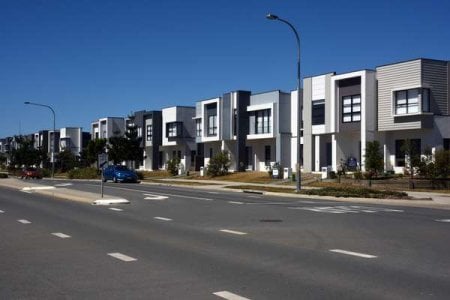Are you overpaying for rent? Learn why thousands of Aussies are now forking over more cash!
- Replies 0
The Australian dream of having a place to call home has become a financial nightmare for many renters across the nation.
Since the onset of the COVID-19 pandemic, the cost of renting has skyrocketed, leaving Australians to grapple with an unprecedented spike in living expenses.
In a recent analysis by Everybody’s Home, it was revealed that capital city renters are now paying an average of $14,700 more per year for houses and $9,600 more for units compared to figures from 2020.
This staggering increase has left many wondering how they will manage to keep a roof over their heads without compromising other aspects of their lives.

In Sydney, the harbour city, renters are shelling out approximately $350 more per week for house rentals and $200 more for units. This equates to an additional annual cost of about $18,500 and $10,450, respectively.
Perth has seen the highest jump for unit renters, with an annual increase of $14,500, or an extra $279 per week. House renters are not far behind, facing an additional $356 per week, or $18,500 annually.
The situation is not much better in Adelaide and Brisbane, where unit renters are dealing with above-average price hikes of $196 and $199 per week, respectively. This means renters in these cities are paying over $10,000 more each year.
House rentals have also seen significant increases, with Brisbane experiencing a $13,468 spike annually and Adelaide a $13,312 rise.
Melbourne, Australia's second-most populous city, has experienced below-average rises, but the costs are still substantial.
Unit renters are paying $137 more per week, or $7,124 annually, while house rents have increased by $207 per week or $10,764 annually.
In Canberra, the nation's capital, unit rents have increased by $92 weekly, or $4,784 annually, and renting a house now costs an additional $108 weekly, or $5,616 annually.
Darwin's unit rental prices have risen by $87 weekly or $4,524 annually, with house rental increases sitting just below the national average at $14,612 annually, or a $281 weekly increase.
Hobart remains the cheapest city for renters, with unit costs rising by $42 per week and house rents by $68, equating to $2,184 and $3,536, respectively.
However, even these increases can be a strain for those on fixed incomes or facing financial challenges.
The steep rise in rents is not just a matter of numbers; it has real-life consequences.
Maiy Azize, a spokeswoman for Everybody’s Home, highlighted the dire situation, stating, ‘The steep rise in rents is pushing more people into severe housing stress and homelessness.’
‘People are sacrificing the necessities to afford the rent, living in appalling unhealthy conditions because there’s nowhere else for them to go, and ditching important life decisions because of housing insecurity.'
With a social housing shortfall of 640,000 homes, which is expected to rise to nearly one million in two decades, Australians are being priced out of the cities where they work.
This has prompted calls for governments to take action, such as increasing welfare payments, implementing nationally consistent rental protections, phasing out tax reforms like capital gains and negative gearing, and boosting social housing stocks.
The federal government is currently in negotiations to pass laws setting up a Help to Buy scheme, which is a shared equity scheme aimed at assisting first-home buyers to purchase a property with a lower deposit.
However, the outcome of these negotiations remains to be seen.
As we navigate these challenging times, it's crucial for renters to stay informed about their rights and the resources available to them.
If you're feeling the pinch of rising rental costs, consider reaching out to housing advocacy groups for support and advice.
And remember, you're not alone in this struggle—thousands of Aussies are in the same boat, and together, there's hope for a solution that will provide relief to renters nationwide.
As rental prices soar across the nation, many Australians are feeling the financial strain, particularly pensioners who are already on fixed incomes.
The recent spike in rental costs has raised concerns about affordability and sustainability for vulnerable communities.
This has led to widespread discussions about how these increases impact seniors, prompting many to seek answers about their own situations.
For pensioners facing rent hikes, it’s crucial to stay informed and proactive in navigating these challenges.

We'd love to hear from you, our readers. Have you experienced a significant increase in your rent? How are you coping with the rising costs? Share your stories and tips in the comments below, and let's support each other through these tough times.
Since the onset of the COVID-19 pandemic, the cost of renting has skyrocketed, leaving Australians to grapple with an unprecedented spike in living expenses.
In a recent analysis by Everybody’s Home, it was revealed that capital city renters are now paying an average of $14,700 more per year for houses and $9,600 more for units compared to figures from 2020.
This staggering increase has left many wondering how they will manage to keep a roof over their heads without compromising other aspects of their lives.

Australian renters are facing significant increases, with capital city tenants paying an average of $14,700 more per year for houses and $9,600 more for units post-COVID-19. Credit: Shutterstock
In Sydney, the harbour city, renters are shelling out approximately $350 more per week for house rentals and $200 more for units. This equates to an additional annual cost of about $18,500 and $10,450, respectively.
Perth has seen the highest jump for unit renters, with an annual increase of $14,500, or an extra $279 per week. House renters are not far behind, facing an additional $356 per week, or $18,500 annually.
The situation is not much better in Adelaide and Brisbane, where unit renters are dealing with above-average price hikes of $196 and $199 per week, respectively. This means renters in these cities are paying over $10,000 more each year.
House rentals have also seen significant increases, with Brisbane experiencing a $13,468 spike annually and Adelaide a $13,312 rise.
Melbourne, Australia's second-most populous city, has experienced below-average rises, but the costs are still substantial.
Unit renters are paying $137 more per week, or $7,124 annually, while house rents have increased by $207 per week or $10,764 annually.
In Canberra, the nation's capital, unit rents have increased by $92 weekly, or $4,784 annually, and renting a house now costs an additional $108 weekly, or $5,616 annually.
Darwin's unit rental prices have risen by $87 weekly or $4,524 annually, with house rental increases sitting just below the national average at $14,612 annually, or a $281 weekly increase.
Hobart remains the cheapest city for renters, with unit costs rising by $42 per week and house rents by $68, equating to $2,184 and $3,536, respectively.
However, even these increases can be a strain for those on fixed incomes or facing financial challenges.
The steep rise in rents is not just a matter of numbers; it has real-life consequences.
Maiy Azize, a spokeswoman for Everybody’s Home, highlighted the dire situation, stating, ‘The steep rise in rents is pushing more people into severe housing stress and homelessness.’
‘People are sacrificing the necessities to afford the rent, living in appalling unhealthy conditions because there’s nowhere else for them to go, and ditching important life decisions because of housing insecurity.'
With a social housing shortfall of 640,000 homes, which is expected to rise to nearly one million in two decades, Australians are being priced out of the cities where they work.
This has prompted calls for governments to take action, such as increasing welfare payments, implementing nationally consistent rental protections, phasing out tax reforms like capital gains and negative gearing, and boosting social housing stocks.
The federal government is currently in negotiations to pass laws setting up a Help to Buy scheme, which is a shared equity scheme aimed at assisting first-home buyers to purchase a property with a lower deposit.
However, the outcome of these negotiations remains to be seen.
As we navigate these challenging times, it's crucial for renters to stay informed about their rights and the resources available to them.
If you're feeling the pinch of rising rental costs, consider reaching out to housing advocacy groups for support and advice.
And remember, you're not alone in this struggle—thousands of Aussies are in the same boat, and together, there's hope for a solution that will provide relief to renters nationwide.
As rental prices soar across the nation, many Australians are feeling the financial strain, particularly pensioners who are already on fixed incomes.
The recent spike in rental costs has raised concerns about affordability and sustainability for vulnerable communities.
This has led to widespread discussions about how these increases impact seniors, prompting many to seek answers about their own situations.
For pensioners facing rent hikes, it’s crucial to stay informed and proactive in navigating these challenges.
Key Takeaways
- Renters in Australia are experiencing significant rent increases, with capital city renters paying on average $14,700 more per year for houses and $9,600 more for units post-COVID-19.
- The rent spikes are nationwide, with Sydney renters paying an average of about $18,500 and $10,450 more annually for houses and units, respectively, and Perth unit renters facing the highest increase in the country at $14,500 annually.
- The increase in rental costs is causing severe housing stress and homelessness, with more Australians having to sacrifice necessities to afford rent or living in poor conditions.
- The government is being urged to improve welfare payments, establish rental protections, reform taxes such as capital gains and negative gearing, and increase social housing stocks to address the housing affordability crisis.







